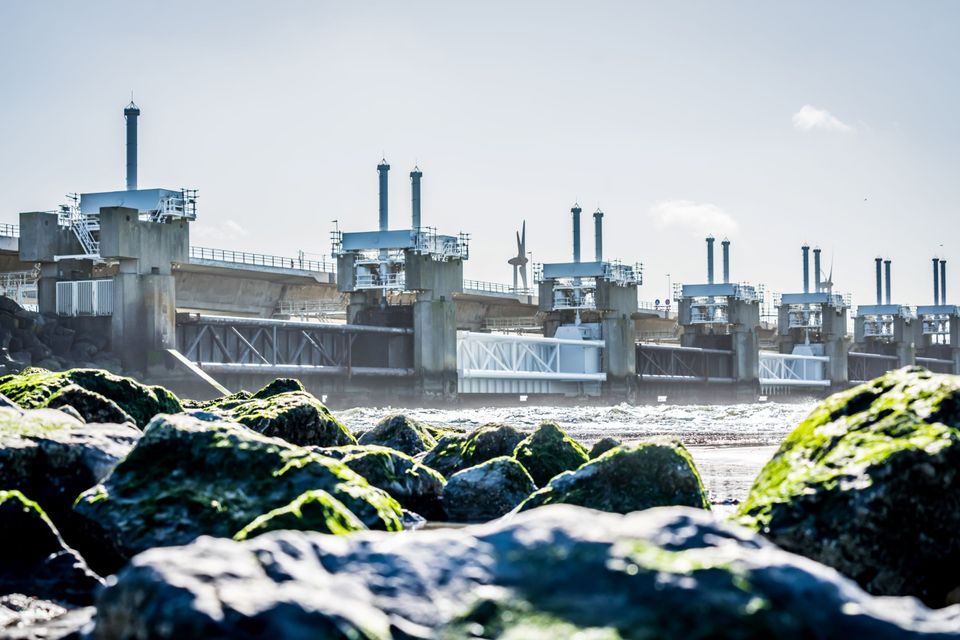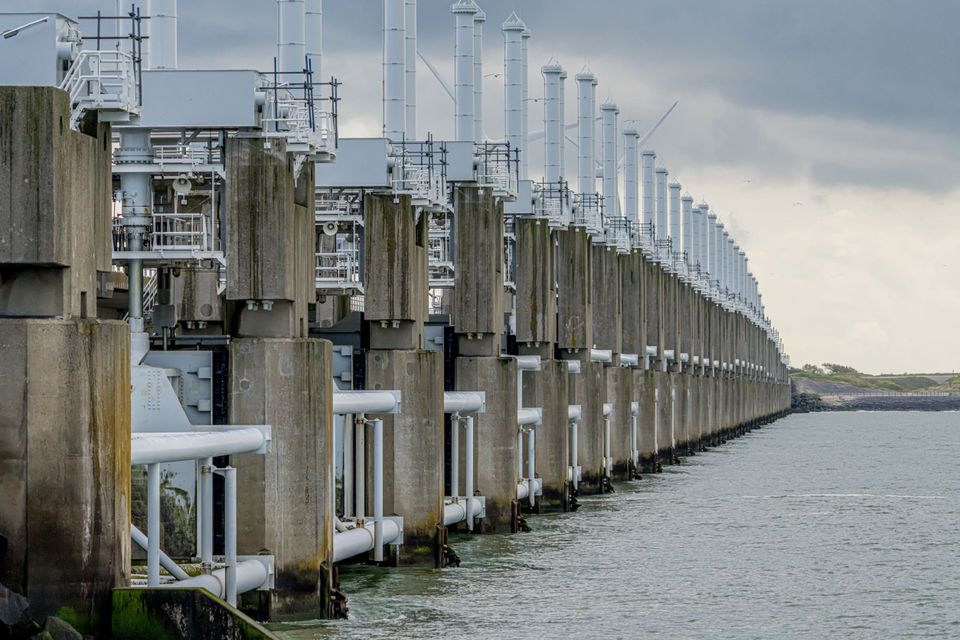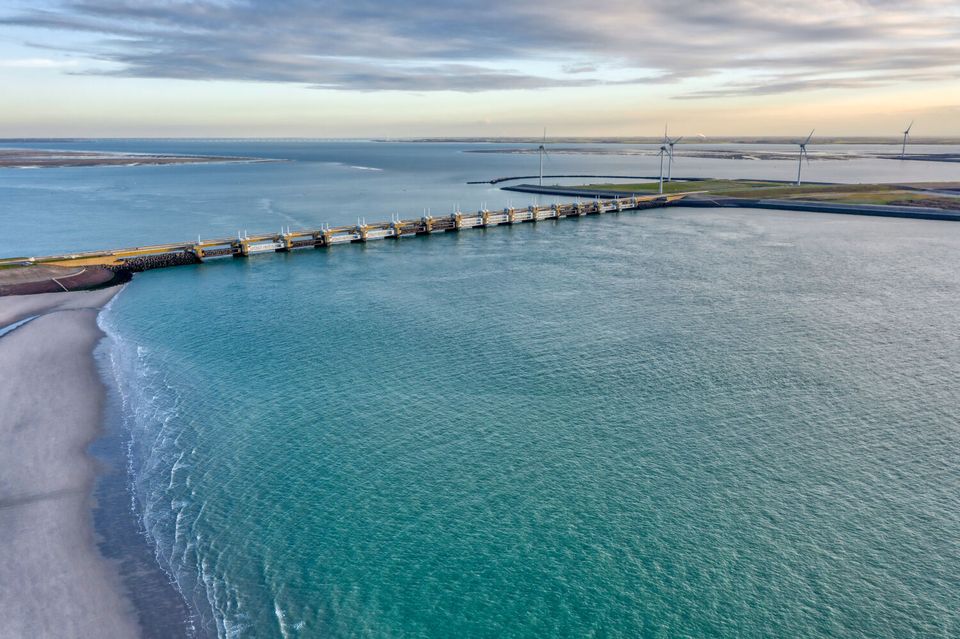Oosterscheldekering
The Oosterscheldekering is a unique structure in the Netherlands known for its impressive size and is part of the Delta Works. It has a total length of 9 kilometers, consists of 62 sluices, and is part of the N57. When high tide threatens (higher than three meters above NAP), the sluices are closed. This preserves the natural ebb and flow of the Oosterschelde and optimally protects underwater life.
The construction of the Oosterscheldekering, which took place between 1986 and 1997, was one of the largest and most complex projects in the Netherlands. It features various technical innovations and is specifically designed to protect underwater life. Protecting the Oosterschelde and its unique underwater life remains crucial, and therefore, the Delta Works are regularly monitored and maintained.
Tourists can visit th…
The Oosterscheldekering is a unique structure in the Netherlands known for its impressive size and is part of the Delta Works. It has a total length of 9 kilometers, consists of 62 sluices, and is part of the N57. When high tide threatens (higher than three meters above NAP), the sluices are closed. This preserves the natural ebb and flow of the Oosterschelde and optimally protects underwater life.
The construction of the Oosterscheldekering, which took place between 1986 and 1997, was one of the largest and most complex projects in the Netherlands. It features various technical innovations and is specifically designed to protect underwater life. Protecting the Oosterschelde and its unique underwater life remains crucial, and therefore, the Delta Works are regularly monitored and maintained.
Tourists can visit the Oosterscheldekering and view the impressive techniques used in its construction. It is a unique experience to witness this remarkable structure and understand how it contributes to the protection of the Netherlands against flooding. The Oosterscheldekering is not only important for the Netherlands but also for the world as an example of successful protection against high water.
Scan de QR-code hieronder voor de mobiele website
Contact
from your location




